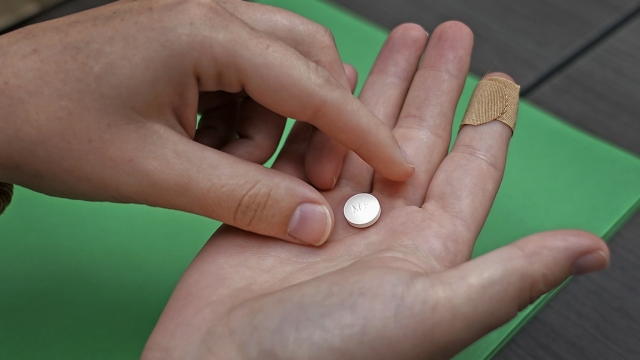After the U.S. Supreme Court's decision to maintain access the abortion pill mifepristone, physicians will be able to keep prescribing the drug as a lower court case on its FDA approval moves through the judicial process.
The appeal seeks to roll back a long-set Food and Drug Administration approval for the pill.
Government lawyers have argued that the FDA followed all of the proper laws and steps in its decision-making process when the drug was approved over 20 years ago, in 2000.
The drug's approval still has the backing of the Biden administration. After the Supreme Court's decision, President Joe Biden said, "I continue to stand by FDA’s evidence-based approval of mifepristone."
Senate Majority Leader Chuck Schumer added that the fight is far from over.
“We have to keep doing everything we can to protect a woman's right to choose and protect their right to get this medication, which has always been allowed in the past,” said Sen. Schumer.
The next formal step in the lower court case will be in Louisiana, where the U.S. Court of Appeals for the 5th Circuit is scheduled to hear oral arguments on the merits of the case next month.
Those arguments will take place at a courthouse in New Orleans on May 17 at 1 p.m.
A three-judge panel will hear the case; after oral arguments, they’ll issue a written decision. Both sides would then be given the option to appeal, and it’s quite possible the case could end up back at the Supreme Court.
SEE MORE: Supreme Court preserves access to abortion pill mifepristone
The Biden administration had asked the high court justices to preserve the status quo availability of mifepristone as the government works through its appeal case in the 5th circuit.
The lower court case will examine various scientific evidence to determine if the original FDA approval was sound. Some of those studies considered by a judge in the case have been called into question, as some appeared not to be peer reviewed.
In a statement, the Alliance Defending Freedom – the conservative legal group representing abortion opponents who filed that lawsuit – said the case continues to move quickly and that the FDA must answer after “failing to study how dangerous the chemical abortion drug regimen is.”
Mifepristone, also known as RU-486 or Mifeprex, was approved in the United States over two decades ago and is used in conjunction with the drug misoprostol to block the effects of the hormone necessary to maintain a pregnancy. Misoprostol would make the uterus contract to expel the pregnancy.
Attorneys may argue to a judge about mifepristone's multiple off-label uses as well. For example, the drug has shown very promising results in treating polycystic ovarian syndrome, according to a study published by the National Library of Medicine.
SEE MORE: Jonathan Adler on what the Supreme Court's abortion decision means
This current legal battle comes less than a year after the High Court reversed Roe v. Wade, and now abortion is banned in about a dozen states. Reproductive rights proponents worry about the risk these battles pose to the public.
"I hope that you recognize that things have changed. There was a moment not very long ago when our conversation was about public policy. This is no longer a conversation just about public policy. This is a conversation about logistics and operations and how we keep people safe and how we make sure that people have access to reproductive health care," said Sue Dunlap, President and CEO, Planned Parenthood Los Angeles.
Over the years, the FDA expanded access to mifepristone, allowing it to be prescribed and sent in the mail. Women who have wanted a less invasive way to end pregnancies in the first 10 weeks of gestation have used the drug along with misoprostol to accomplish that.
It's unclear if various steps over the years to give more access to the drug — like making it available through the mail, or an FDA approval in 2016 which expanded the window of access from seven weeks' gestation to ten weeks' — would be denied as the appeal moves through federal court.
There is also a lawsuit filed by the generic maker of the drug, GenBioPro, which aims to try and block the FDA from removing its version of the drug from the market.
Trending stories at Scrippsnews.com




